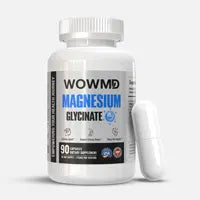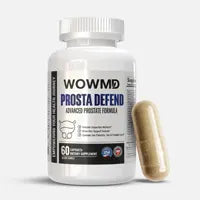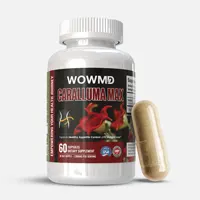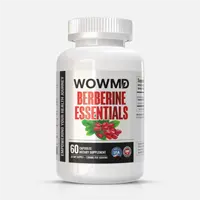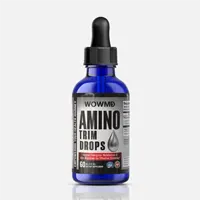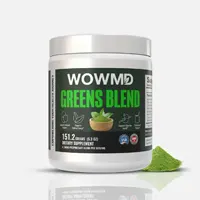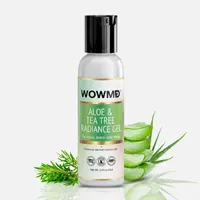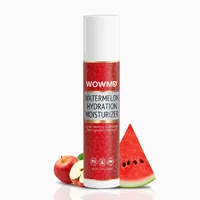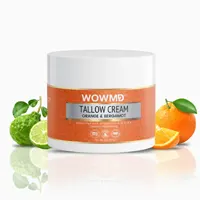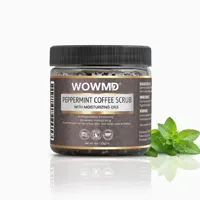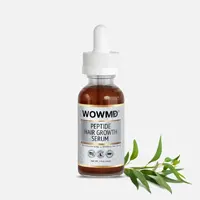Health Benefits of Ginseng: How Effective Is It for You?
Ginseng, renowned for its medicinal properties, is celebrated for its adaptogenic effects, offering a diverse range of potential health benefits.
Advertiser Disclosure: WOWMD independently vets all recommended products. If you purchase a featured product, we may be compensated. Learn why you can trust us.
You May Also Like
Popular Stories
- The Best Beef Tallow Products for Radiant Skin: A 2026 Guide
- Holy Basil : Ayurveda’s Herb for Balance, Immunity & Everyday Calm
- Best Gel Moisturizers for Hydration & Skin Care in 2026
- 7 Best Effective Supplements for Improving Bladder and Prostate Health in 2026
- 4 Best Cooling Gels for Skin and Body: Instant Refreshment and Relief
- 4 Best Hyaluronic Acid Serums for Skin Hydration - Tested & Reviewed
References
WOWMD follows strict sourcing guidelines to ensure the accuracy of its content, outlined in our editorial policy. We use only trustworthy sources, including peer-reviewed studies, qualified experts, and information from top institutions.
- Efficacy of ginseng supplements on disease-related fatigue: A systematic review and meta-analysis: https://www.ncbi.nlm.nih.gov/pmc/articles/PMC9239648/
- Effects of lifetime cumulative ginseng intake on cognitive function in late life: https://pmc.ncbi.nlm.nih.gov/articles/PMC5968575/
- Improved working memory performance following administration of a single dose of American ginseng (Panax quinquefolius L.) to healthy middle-age adults: https://pubmed.ncbi.nlm.nih.gov/25778987/
- Panax ginseng as an adjuvant treatment for Alzheimer's disease: https://pubmed.ncbi.nlm.nih.gov/30337800/
- Review of Ginseng Anti-Diabetic Studies: https://pmc.ncbi.nlm.nih.gov/articles/PMC6943541/
- Efficacy and safety of American ginseng (Panax quinquefolius L.) extract on glycemic control and cardiovascular risk factors in individuals with type 2 diabetes: a double-blind, randomized, cross-over clinical trial: https://pubmed.ncbi.nlm.nih.gov/29478187/
- American Ginseng Attenuates Eccentric Exercise-Induced Muscle Damage via the Modulation of Lipid Peroxidation and Inflammatory Adaptation in Males: https://pmc.ncbi.nlm.nih.gov/articles/PMC8746757/
- Anti-Inflammatory Potential of Cultured Ginseng Roots Extract in Lipopolysaccharide-Stimulated Mouse Macrophages and Adipocytes: https://pubmed.ncbi.nlm.nih.gov/32630030/
- Adaptogenic effects of Panax ginseng on modulation of immune functions: https://pmc.ncbi.nlm.nih.gov/articles/PMC7790873/
- A comparative study on immune-stimulatory and antioxidant activities of various types of ginseng extracts in murine and rodent models: https://pmc.ncbi.nlm.nih.gov/articles/PMC6191938/
- Immuno-enhancement effects of Korean Red Ginseng in healthy adults: a randomized, double-blind, placebo-controlled trial: https://pmc.ncbi.nlm.nih.gov/articles/PMC7790881/
- Anticancer Activities of Ginsenosides, the Main Active Components of Ginseng: https://pmc.ncbi.nlm.nih.gov/articles/PMC7875636/
- Ginseng consumption and risk of cancer: A meta-analysis: https://pubmed.ncbi.nlm.nih.gov/27616903/
 Alpha Man Power Pack
Alpha Man Power Pack All-Day Fat Burn Trio
All-Day Fat Burn Trio Better Immunity Bundle
Better Immunity Bundle  Calm & Sleep Duo
Calm & Sleep Duo Cognitive Health & Vision Combo
Cognitive Health & Vision Combo Complete Weight Loss Bundle
Complete Weight Loss Bundle Core Vitality Trio
Core Vitality Trio Energy Booster Combo
Energy Booster Combo Focus Fuel Trio
Focus Fuel Trio Glow & Balance Duo
Glow & Balance Duo Health Balance Trio
Health Balance Trio Heart Care Bundle
Heart Care Bundle Joint Health Support Combo
Joint Health Support Combo Men's Immunity & Prostate Health Bundle
Men's Immunity & Prostate Health Bundle Metabolism Boost Duo
Metabolism Boost Duo Natural Skin Care Bundle
Natural Skin Care Bundle Peak Performance Duo
Peak Performance Duo Relax & Recharge Duo
Relax & Recharge Duo Skin Detoxification Bundle
Skin Detoxification Bundle Smart Energy Trio
Smart Energy Trio Stress + Energy + Wellness Combo
Stress + Energy + Wellness Combo  Total Burn Ignite Trio
Total Burn Ignite Trio Total Harmony Pack
Total Harmony Pack Workout Supplements Combo
Workout Supplements Combo